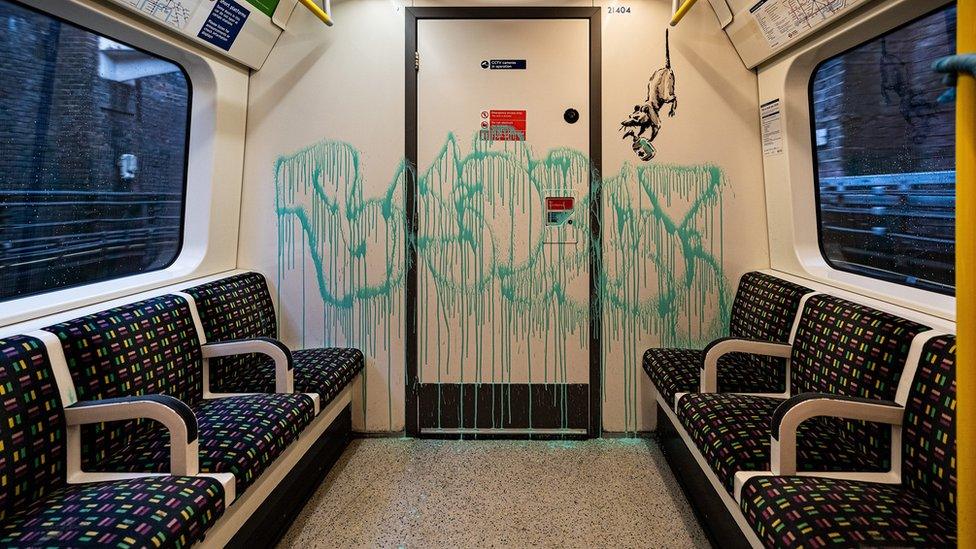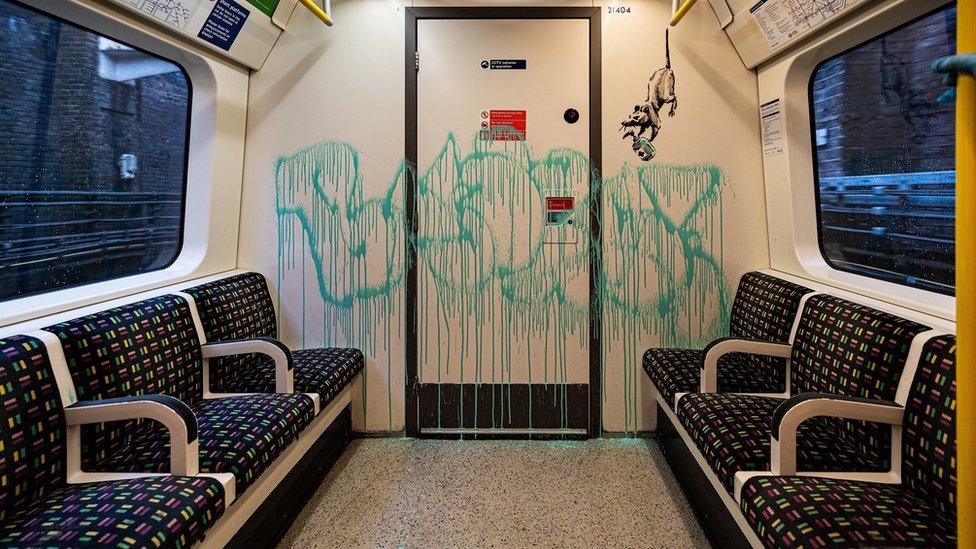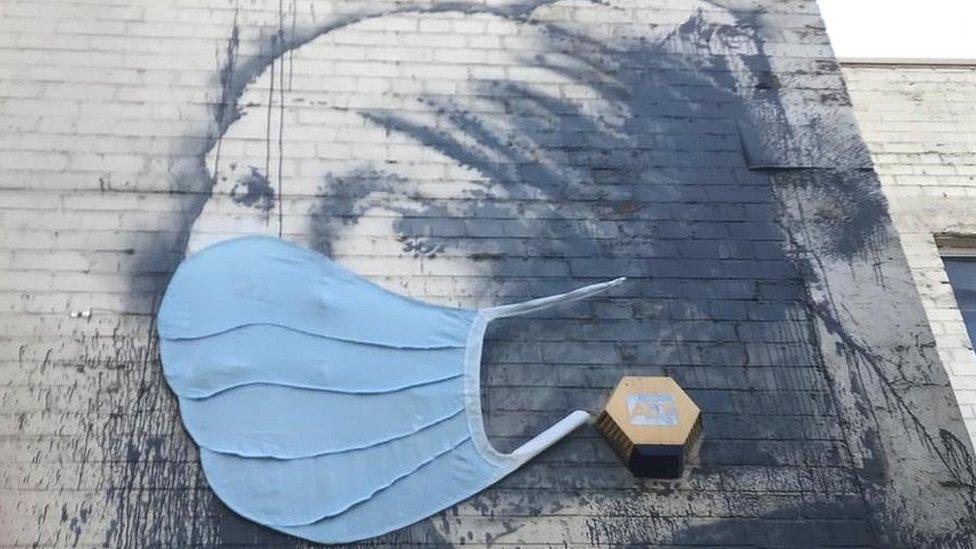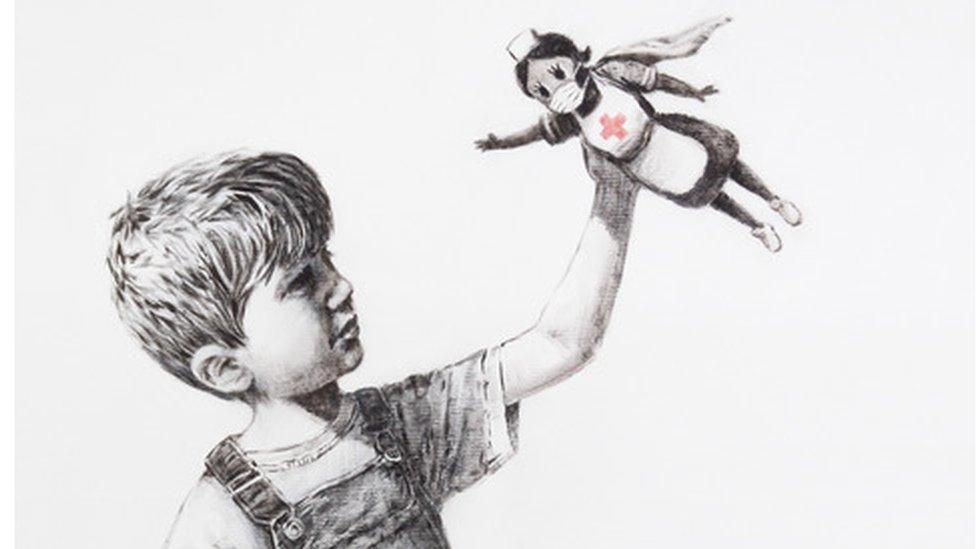Banksy Tube graffiti: Cleaners 'unaware it was by artist'
- Published

Banksy spray painted his tag in the colours of a medical face mask
Cleaners did not know graffiti on a London Underground train was by world-renowned artist Banksy when they removed it, the BBC has been told.
The piece, If You Don't Mask, You Don't Get, was painted inside a Circle Line service carriage.
But by the time he unveiled the work on his Instagram account, external, it had been wiped away by Transport for London (TfL) cleaning crews.
A TfL source said: "It was treated like any other graffiti on the network."
"The job of the cleaners is to make sure the network is clean, especially given the current climate," they said.
A video posted online showed a man - presumed to be Banksy - disguised as a cleaner and armed with stencils.
It is thought the stunt, revealed on Tuesday, was designed to encourage the use of face masks.

Analysis
By Tom Edwards, BBC London Transport Correspondent
It was a smudge on a cleaning cloth long before the artist revealed on social media he'd done it.
In the current climate, it is perhaps reassuring that the cleaners on the Tube did their job quickly and efficiently and cleaned off the work so quickly.
Graffiti is regarded - certainly in the transport world and by many commuters - as something that contributes to a threatening, unwelcoming atmosphere.
Of course there will be those who say it should have been kept or protected as art but that is somewhat academic.
You get the feeling Banksy, who has previously destroyed his art on purpose, knew exactly what would happen to his work by putting it inside a carriage.
This was perhaps all part of the plan.

An official statement said the art was removed "some days ago" in line with the London Underground's "strict anti-graffiti policy".
All public transport users in London must wear a face covering, and TfL said it appreciated "the sentiment of encouraging people" to do so.
"We'd like to offer Banksy the chance to do a new version of his message for our customers in a suitable location," it added.
- Published14 July 2020

- Published22 April 2020

- Published6 May 2020
